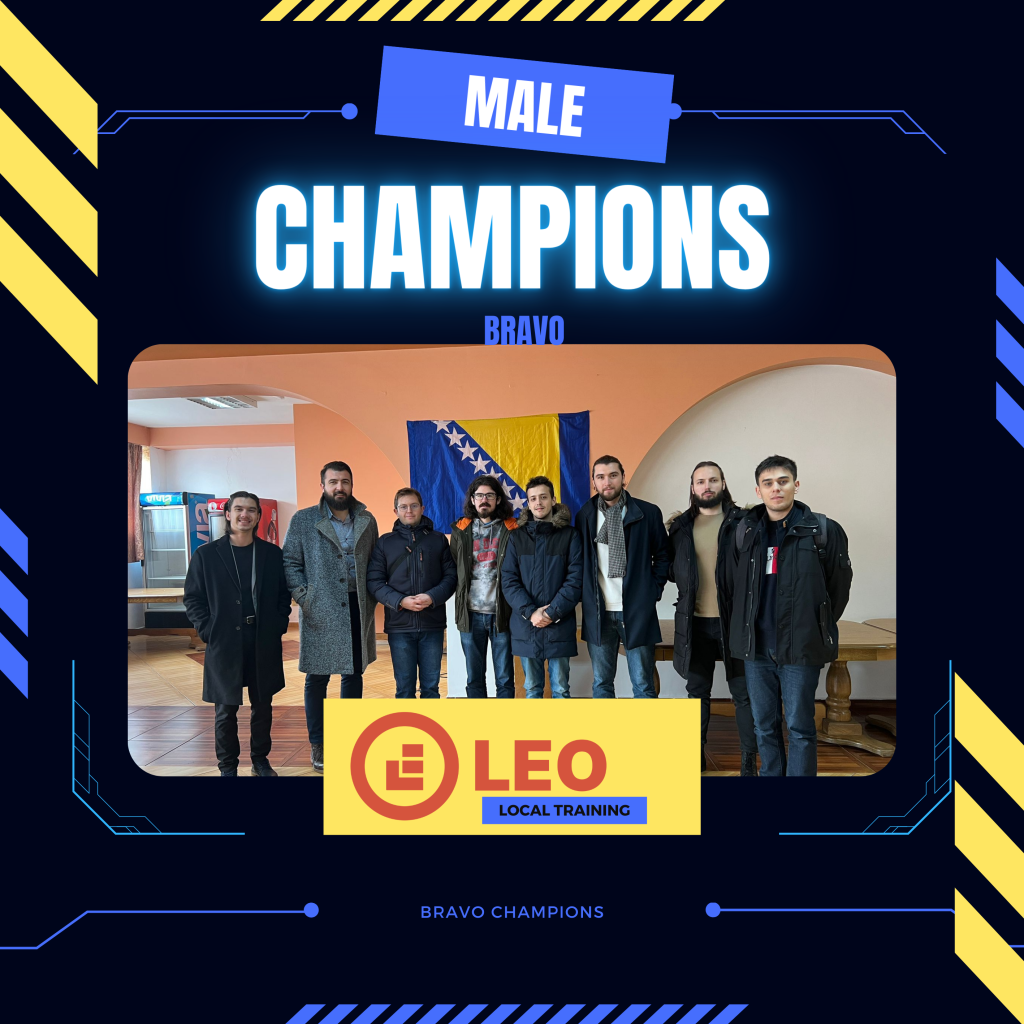
BRAVO has just written one valuable story that has gradually impacted people’s life.
On the 8th of December in Sarajevo was held long-awaited training for male champions as part of the project ”Leadership is for everyone-LEO”. This training was held by Ismail Šehić, BRAVO director, and it gathered young male figures who were eager to gain knowledge and use that knowledge in good efforts.
By taking part in this training, participants had the opportunity to learn more about gender stereotypes and gender equality. Participants emphasized the double standards that society imposes and discussed the obstacles that people, particularly women face in the processes of economic empowerment. Therefore, they also learned more about the ways they can get involved in the process of empowering women in different spheres of daily life.
They learned the fundamentals of implementing local activities as well as what it takes to be a great facilitator and an even greater leader.
Another chapter of the project is brought to an end. We can’t be happier about its outcomes and to see what is coming next. One thing is certain: our team is working hard to organize future project activities and engage young people in the local community. That being said, stay tuned because ”LEO” project is here to stay and bring more valuable opportunities that will help young people expand their knowledge and upgrade their skills all while Making the World Wonder.
Remember: Leadership is for Everyone, and more than anything, leadership is about who you are.
What is LEO?
The project aims at enhancing women’s leadership, developing NFE resources for youth workers and young people, promoting men’s involvement in women’s empowerment, and strengthening the synergies between youth work and the labour market.
Identifying young women’s challenges in becoming leaders in partner countries and understanding how to address them during the first five months of the first year (research and gender assessment).
Women’s empowerment is a prerequisite for gender equality, according to the CoE Gender Equality Strategy 2018-2023. Even when girls demonstrate leadership abilities or hold positions of power, the world fails to make them feel good because the mind model that we have is gendered “male.” As a result, when girls adopt such a model, claiming that leaders are bold and make difficult decisions, they may experience cognitive dissonance (A. Sinclair, 2007). Men outnumber women in leadership positions in every sector
of the world, including business, nonprofits, government, education, medicine, the military, and religion (Andrews, 2021).
This gender gap, often referred to with the metaphor “glass ceiling”, represents one of the most critical challenges to achieve gender equity and allow equitable working opportunities to all genders.
An extensive body of research claims that men can benefit from greater gender equality in that the pressure of being the primary breadwinner of the household is relieved, and they can develop healthier relationships with their wives and children. This view is particularly true in developing countries, where women have limited freedom and autodetermination (Connell, 2013 in Sweetman, 2013).
Furthermore, research suggests that the most efficient social group to educate about women leadership and gender equality is the youth. It is critical to engage younger men in this process, especially for future generations of female entrepreneurs and business owners (IMAGES, 2010).
Given the urgency of achieving gender equity, which encompasses promoting women leadership and including men in the process, the capacity building project LEO – Leadership is for Everyone was created.
The project aims at enhancing women’s leadership, developing NFE resources for youth workers and young people, promoting men’s involvement in women’s empowerment, and strengthening the synergies between youth work and the labour market. This aim will be achieved through the following objectives:
1. Identifying young women’s challenges in becoming leaders in partner countries and understanding how to address them during the first five months of the first year (research and gender assessment).
2. By the end of the first year, we aim at having increased men’s involvement in the process of women’s empowerment and identified 20 (5 per partner country)positive masculinity figures to support the project and challenge traditional sexist stereotypes in their communities (gender assessment, training and e-courses).
3. To improve the qualifications and competencies of 5 youth workers in each partner country by the end of the first year in order to better support women’s leadership (e-courses and training).
4. To make it easier for 20 women from each partner country to enter the labor force by August 2023. (internship programme, job shadowing, training and e-courses).
5. By the end of the second year, partner countries should have a better understanding of young women’s leadership and gender equality (3 local events, 1 career fair, e-courses, mediatic dissemination).
Furthermore, the project addresses many of the general call’s objectives:
1. raising the capacity of organizations working with young people outside formal learning: partner organisations will improve their knowledge and competencies to advance women’s leadership.
2. promote non-formal learning activities in Partner countries, especially targeting young people with fewer opportunities, with a view to improving the level of competences while ensuring the active participation of young people in society: the project mainly targets young women who, because of their gender and fewer opportunities, struggle to enter the marketplace.
3. support the development of youth work in Partner countries, improving its quality and recognition: six youth workers from each partner country will be trained to support women’s leadership and advance their learnings to achieve a major impact in the field of youth work.
4. foster cooperation across different regions of the world through joint initiatives of four countries (Italy, Lithuania, Albania, and Bosnia Herzegovina) with different cultures and gender issues. 5. enhance synergies and complementarities with formal education systems and/or the labour market: the ultimate goal of the project is to promote women’s leadership and facilitate their access to the labour market.
